
Unveiling the Coastal Charms of Côtes-de-Fer
Nestled on the southeastern coast of Haiti, Côtes-de-Fer is a hidden gem waiting to be discovered. This serene town is known for its stunning coastline, where turquoise waters gently kiss sandy shores, creating a perfect backdrop for relaxation and adventure. The untouched beaches offer a tranquil escape from the hustle and bustle of modern life, making it an ideal spot for those looking to unwind and connect with nature. Beyond its pristine beaches, Côtes-de-Fer is rich in cultural heritage. Visitors can explore local markets brimming with fresh produce and handmade crafts, providing an authentic taste of Haitian life. The town's vibrant culture is also reflected in its festivals and traditional music, which offer a unique glimpse into the heart and soul of Haiti. For the more adventurous, Côtes-de-Fer offers opportunities for hiking and exploring nearby hills and forests. The scenic trails provide breathtaking views of the coastline and the surrounding countryside. Whether you are a nature lover, a culture enthusiast, or simply seeking peace and beauty, Côtes-de-Fer promises an unforgettable experience.
Local tips in Côtes-de-Fer
- Visit during the dry season (November to March) for the best weather conditions.
- Bring cash, as ATMs and card payments are not widely available in the area.
- Learn a few basic phrases in Haitian Creole to enhance your interactions with locals.
- Explore local markets early in the morning to experience the freshest produce and vibrant atmosphere.
- Hire a local guide for hiking excursions to ensure safety and gain deeper insights into the area.
Unveiling the Coastal Charms of Côtes-de-Fer
Nestled on the southeastern coast of Haiti, Côtes-de-Fer is a hidden gem waiting to be discovered. This serene town is known for its stunning coastline, where turquoise waters gently kiss sandy shores, creating a perfect backdrop for relaxation and adventure. The untouched beaches offer a tranquil escape from the hustle and bustle of modern life, making it an ideal spot for those looking to unwind and connect with nature. Beyond its pristine beaches, Côtes-de-Fer is rich in cultural heritage. Visitors can explore local markets brimming with fresh produce and handmade crafts, providing an authentic taste of Haitian life. The town's vibrant culture is also reflected in its festivals and traditional music, which offer a unique glimpse into the heart and soul of Haiti. For the more adventurous, Côtes-de-Fer offers opportunities for hiking and exploring nearby hills and forests. The scenic trails provide breathtaking views of the coastline and the surrounding countryside. Whether you are a nature lover, a culture enthusiast, or simply seeking peace and beauty, Côtes-de-Fer promises an unforgettable experience.
When is the best time to go to Côtes-de-Fer?
Iconic landmarks you can’t miss
Hispaniola
Explore the enchanting Hispaniola Island, where rich history meets stunning landscapes and vibrant cultures in the heart of the Caribbean.
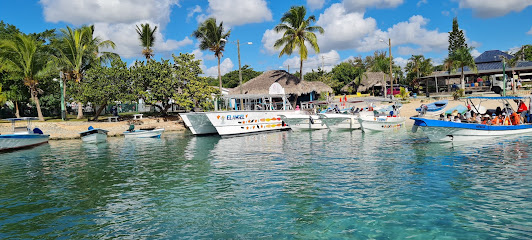
Champ de Mars
Discover the vibrant spirit of Haiti at Champ de Mars, a cultural hub and historical park in the heart of Port-au-Prince.
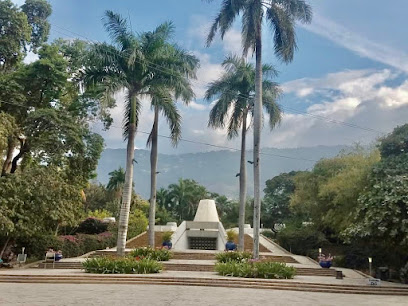
Place Saint-Pierre
Explore the serene beauty and cultural richness of Place Saint-Pierre, a tranquil park in the heart of Port-au-Prince, Haiti.
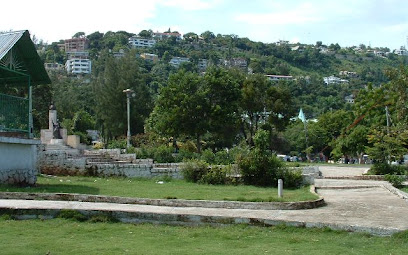
Laferriere Citadel
Experience the awe-inspiring Laferriere Citadel, a symbol of Haiti's rich history and resilience, perched majestically in the mountains.
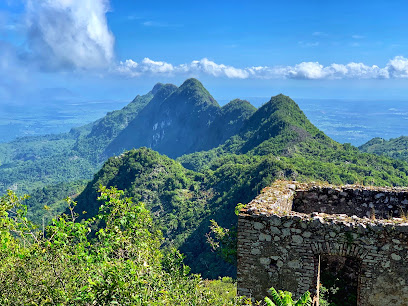
The National Pantheon Museum
Explore the heart of Haitian history at The National Pantheon Museum, a treasure trove of heritage and culture in Port-au-Prince.
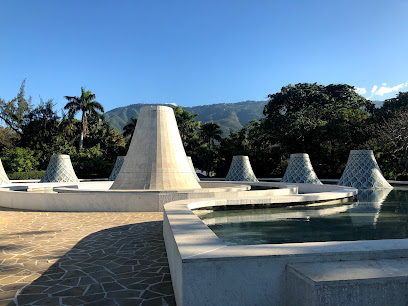
Heroes Monument of Vertières
Discover the Heroes Monument of Vertières in Cap-Haitien, a breathtaking memorial park that honors Haiti's courageous fight for independence and showcases its rich culture.
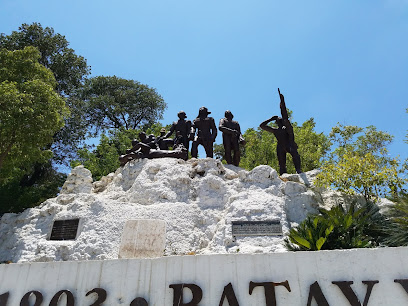
Wynne Farm Ecological Reserve
Explore the serene beauty of Wynne Farm Ecological Reserve in Kenscoff, Haiti, where nature thrives and sustainability reigns.
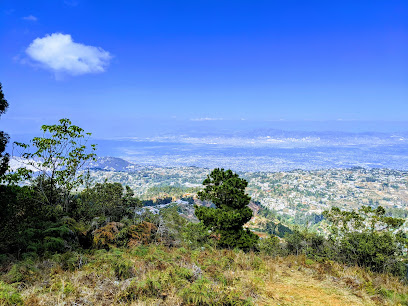
Fort Jacques et Fort Alexandre
Discover the rich history and breathtaking views at Fort Jacques et Fort Alexandre, a must-see fortress in the heart of Haiti.
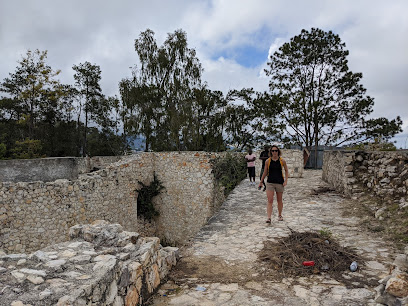
Bassin Bleu
Explore the breathtaking Bassin Bleu in Jacmel, Haiti – a stunning natural oasis with turquoise waters, picturesque waterfalls, and lush landscapes.
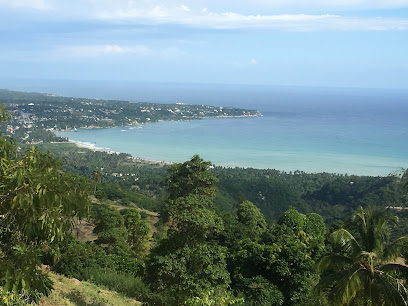
Square Of The Unknown Marron
Explore the Square of the Unknown Marron in Port-au-Prince, a vibrant historical landmark celebrating the spirit of the Maroon people and Haitian culture.
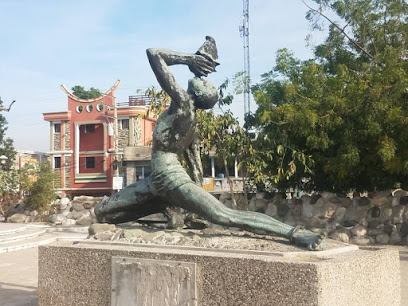
Maison Dufort
Explore Maison Dufort, a stunning museum in Port-au-Prince showcasing the rich heritage and architectural beauty of Haiti.
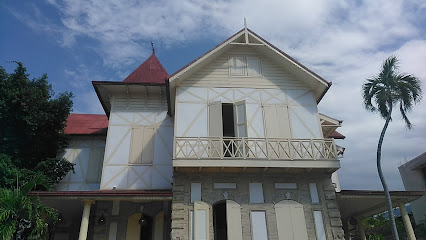
Fort Picolet
Explore Fort Picolet, a historic landmark in Cap-Haïtien, Haiti, offering stunning views and a glimpse into the rich cultural heritage of the region.
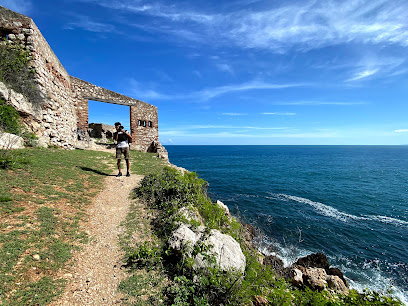
Tombeau de Dessalines
Explore the Tombeau de Dessalines, a serene memorial park in Port-au-Prince celebrating Haiti's fight for independence and honoring Jean-Jacques Dessalines.

Kokoye Beach
Experience the serene beauty of Kokoye Beach in Petit Goave, where soft sands meet vibrant local culture and unforgettable Caribbean sunsets.
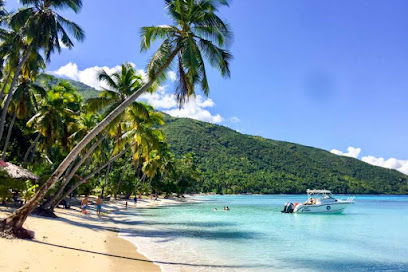
Pont Rouge
Discover the historical richness of Pont Rouge, a vibrant site in Port-au-Prince that showcases Haiti's cultural heritage and artistic spirit.
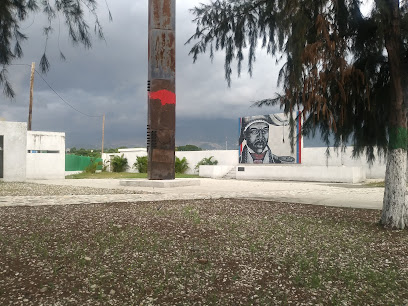
Unmissable attractions to see
Doux Refuge Piscine et Parc
Discover the tranquility of Doux Refuge Piscine et Parc, a beautiful park and pool oasis in Carrefour, perfect for families and relaxation.
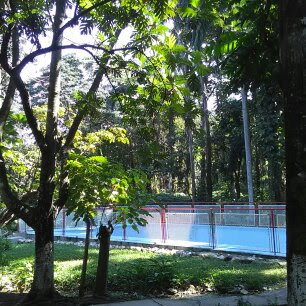
In Martissant Park
Experience the beauty and culture of Haiti at Martissant Park, a vibrant oasis in Carrefour offering relaxation and adventure for all ages.
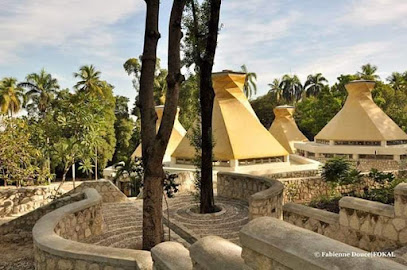
Mande Granmoun
Explore Mande Granmoun in Deslandes, Haiti - a vibrant tourist attraction filled with culture, art, and stunning views, perfect for an enriching travel experience.
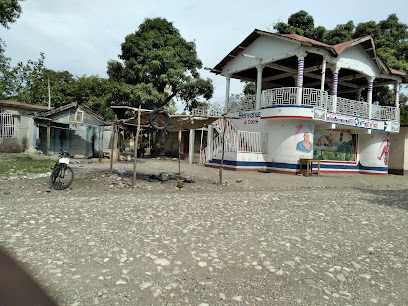
Étoile St André
Explore the enchanting beauty and rich culture of Étoile St André, a must-visit tourist attraction in Dufort Léogâne, Haiti.

Impasse des fleurs
Explore the beauty and artistry of Impasse des Fleurs, a tranquil oasis in Carrefour that celebrates nature and local culture.

Chaumeil
Explore the lush landscapes and serene atmosphere of Chaumeil Park in Grande Saline, a perfect retreat for relaxation and local culture.
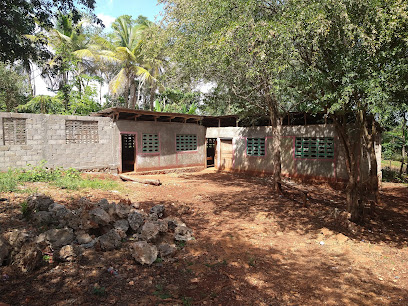
Toro Lakou
Explore Toro Lakou, a hidden treasure in Léogâne, Haiti, where culture, nature, and hospitality come together for an unforgettable experience.

Modèle d'haïti 1er
Discover the cultural vibrancy and artistry of Modèle d'haïti 1er, a must-visit tourist attraction in Léogâne, Haiti, rich in history and local charm.

MORNE d'AQUIN
Experience the breathtaking vistas and serene atmosphere of Morne d'Aquin, a top tourist attraction in Haiti, perfect for nature lovers and cultural explorers alike.

Kiyè fè de Maréchal
Discover the vibrant culture and rich heritage at Kiyè fè de Maréchal, a top tourist attraction in Haiti along Boulevard Maréchal Gressier.

Chenn Tomaren
Experience the heart of Haiti at Chenn Tomaren in Léogâne, where culture, history, and authentic cuisine come together.

El plumador
Discover the scenic beauty and rich culture of Haiti at El Plumador, a captivating tourist attraction in Petite Guinee.

Nan Mapou
Experience the beauty and tranquility of Nan Mapou in Bassin Bleu, a must-visit tourist attraction surrounded by breathtaking natural landscapes.

TEAM FAMILY
Experience unforgettable family adventures at TEAM FAMILY, a vibrant tourist attraction in Fouche, Haiti, perfect for all ages seeking fun and excitement.

Massamba
Experience the vibrant culture and scenic beauty of Massamba in Léogâne, an essential stop for every traveler exploring the heart of Haiti.
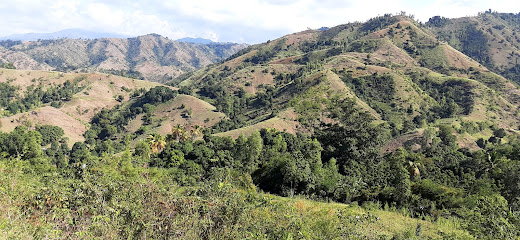
Markets, malls and hidden boutiques
Laguilou Boutique
Discover the essence of Haitian craftsmanship at Laguilou Boutique, your destination for unique gifts and exquisite jewelry in Port-au-Prince.
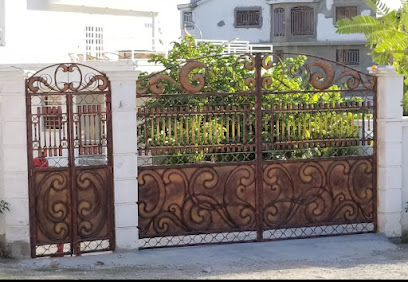
Lova Shop.
Explore unique local fashion at Lova Shop in Fonds-des-Nègres, where style meets culture for a memorable shopping experience.

Wendou Boutique
Explore the vibrant local flavors and unique products at Wendou Boutique in Fonds-des-Nègres, a must-visit supermarket for every traveler.
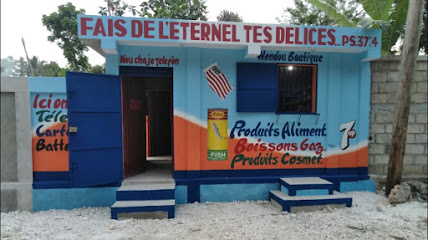
La Perfection Multi Services
Experience the vibrant shopping culture at La Perfection Multi Services in Côtes-de-Fer, where local crafts meet modern retail.

ZapCash Bureau de change
Experience seamless currency exchange and diverse services at ZapCash Bureau de Change in Côtes-de-Fer, your essential travel companion.
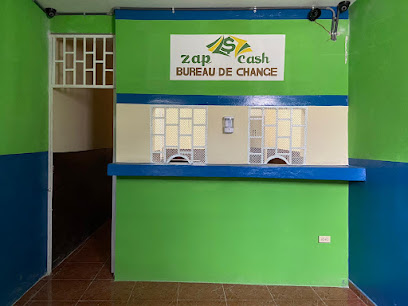
Brandy Store
Experience the essence of Haitian fashion at Brandy Store in Petit-Goâve, a treasure trove of unique clothing and accessories.

Luciana Souvenirs Shop
Explore the charm of Haiti at Luciana Souvenirs Shop - your destination for unique gifts and authentic local crafts.

Delika boutique
Discover the vibrant fashion scene at Delika Boutique, where local styles meet modern elegance in the heart of Petit-Goâve.

Jewelry by Jean-Louis
Explore the exquisite craftsmanship of Jewelry by Jean-Louis in Petit Goave, where every piece reflects the rich culture and artistry of Haiti.

GRAPHIC + MULTI-SERVICES
Discover top-notch computer services and expert digital solutions at GRAPHIC + MULTI-SERVICES in Côtes-de-Fer.
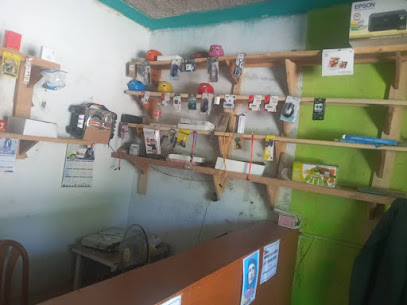
FIFTY ONE Multy Service and Store
Experience the vibrant shopping and local culture at FIFTY ONE Multy Service and Store in Côtes-de-Fer, Haiti.

A Petit Prix
Explore A Petit Prix in Port-au-Prince for unique handcrafted gifts that embody the vibrant culture of Haiti.

Paris Boutique
Explore the authentic flavors of Haiti at Paris Boutique, a charming grocery store in Boucan Moaronne, perfect for local ingredients and unique finds.

FEGI shop
Explore FEGI Shop in Les Cayes for unique Haitian crafts, local culture, and a warm shopping experience that celebrates the spirit of Haiti.

Jeudy production
Discover the unique cinematic experience at Jeudy Production, a vibrant video store in Jacmel showcasing Haitian culture and storytelling.

Essential bars & hidden hideouts
Inazi Bar
Experience the vibrant nightlife and authentic local flavors at Inazi Bar in Nan Contree, your gateway to Caribbean culture.
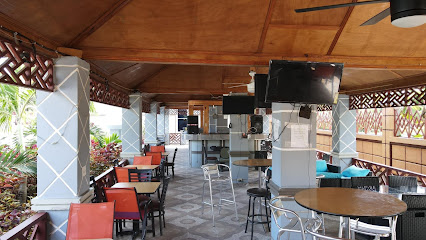
Poseidon Beach Club
Enjoy the best beach vibes at Poseidon Beach Club, where refreshing cocktails meet stunning ocean views in Petite-Rivière-de-Nippes.
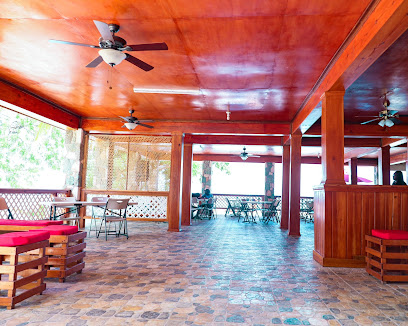
Le Débacardère
Experience the vibrant heart of Petit Goave at Le Débacardère, a lively bar offering local drinks and a taste of the island's vibrant culture.

Prospérité Club
Discover the lively energy of Prospérité Club in Croix Hilaire, a bar where locals and tourists come together to enjoy vibrant nightlife and local flavors.
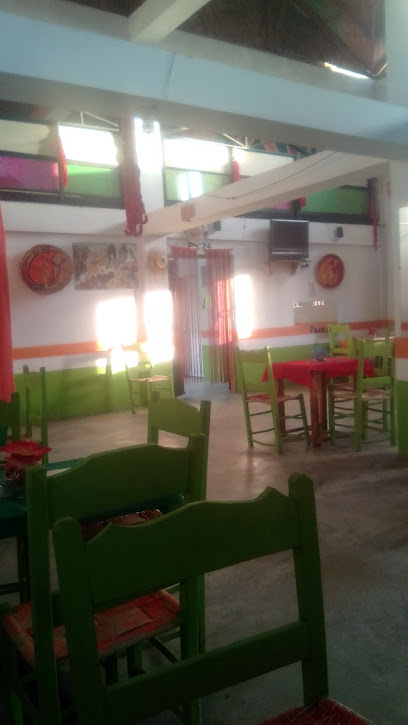
Bar Resto
Discover the flavors of Haiti at Bar Resto in Côtes-de-Fer, where authentic cuisine meets warm hospitality in a cozy setting.
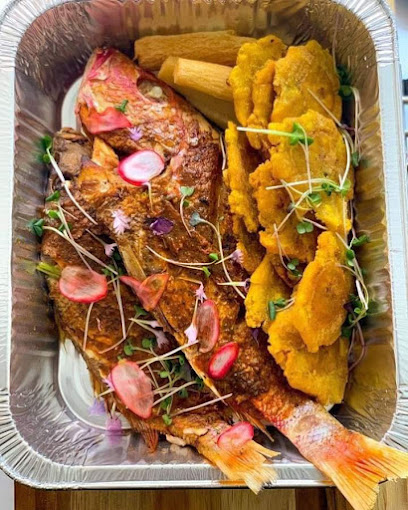
LEDAIN BAR
Discover the heart of Léogâne's nightlife at Ledain Bar, where local culture meets vibrant social gatherings and delicious drinks.
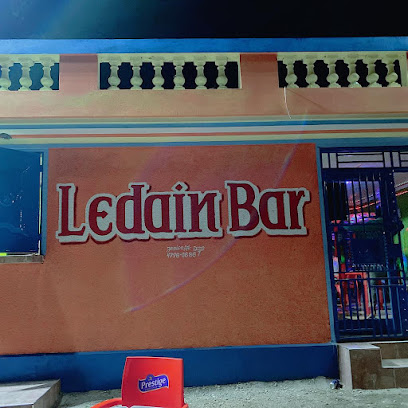
Kay Delat Bar & Grill
Discover the vibrant tastes of Haiti at Kay Delat Bar & Grill, a culinary haven in Paillant offering authentic local dishes and a friendly atmosphere.
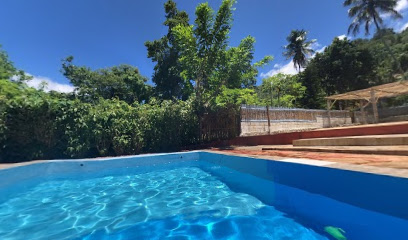
Bally’s Bar Restaurant&Club
Discover the lively nightlife and rich culinary experiences at Bally’s Bar Restaurant & Club in Aquin, a hotspot for tourists and locals alike.
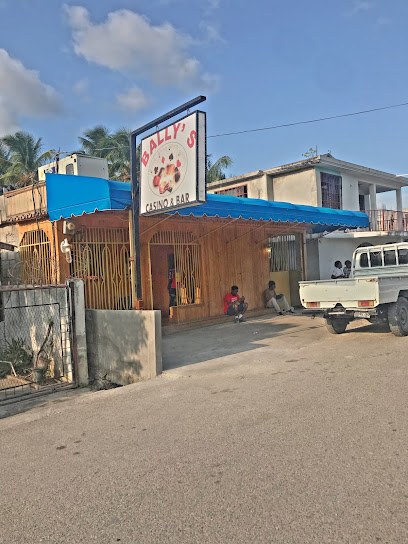
Decouvrir les Nippes
Discover the vibrant nightlife of Miragoane at Decouvrir les Nippes, where local flavors meet a welcoming atmosphere.
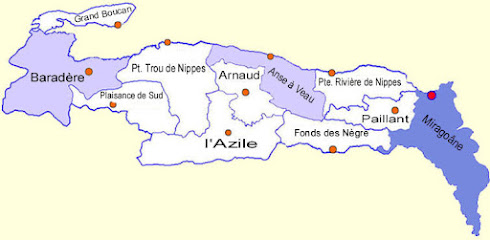
Ket Bar & Grill
Experience the rich flavors of Haitian cuisine at Ket Bar & Grill in Côtes-de-Fer, where every dish tells a story of tradition and taste.
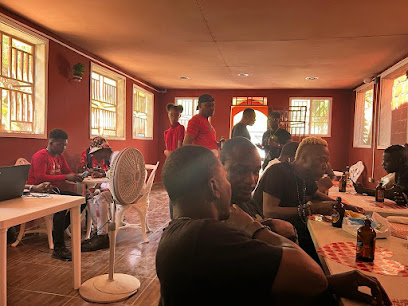
Eritaj bar
Discover the vibrant Eritaj Bar in Charlier, where local flavors meet lively ambiance for an unforgettable night out.
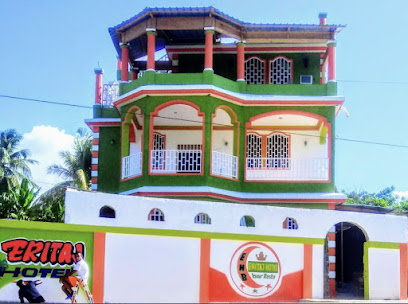
ZAKATAY /BAR /CLUB/ Resto
Discover ZAKATAY in Aquin - A vibrant bar and restaurant blending local flavors, lively nightlife, and unforgettable experiences.
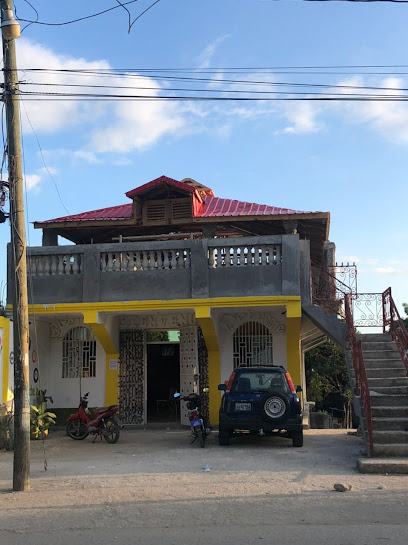
Julio Bar-restaurant
Discover the authentic flavors of Haiti at Julio Bar-Restaurant in Fond-des-Blancs, where local cuisine meets vibrant culture.

Coin du bonheur bar restaurant
Experience the vibrant flavors of Haiti at Coin du Bonheur Bar Restaurant in Côtes-de-Fer, where every dish tells a story.
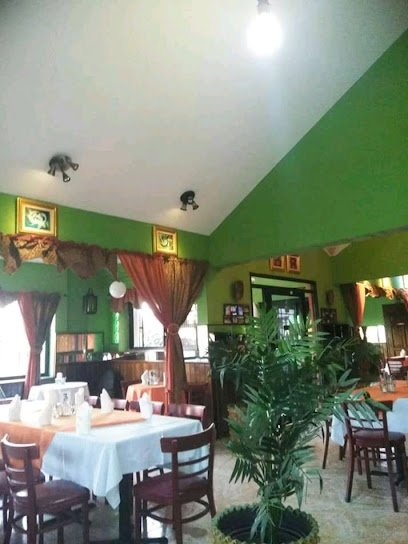
Local Phrases about Côtes-de-Fer
-
- HelloBonjou
[bon-zho] - GoodbyeOrevwa
[oh-rev-wa] - YesWi
[wee] - NoNon
[non] - Please/You're welcomeTanpri
[tan-pree] - Thank youMèsi
[may-see] - Excuse me/SorryEskize mwen
[es-kee-zay mwen] - How are you?Kijan ou ye?
[key-zhan oo yay] - Fine. And you?Byen. E ou?
[byen. ay oo] - Do you speak English?Eske ou pale angle?
[es-kay oo pal an-glay] - I don't understandMwen pa konprann
[mwen pa kohn-pran]
- HelloBonjou
-
- I'd like to see the menu, pleaseMwen ta renmen we meni a, tanpri
[mwen tah rahn-men weh men-ee ah, tan-pree] - I don't eat meatMwen pa manje vyann
[mwen pa manj vyan] - Cheers!Sante!
[san-tay] - I would like to pay, pleaseMwen ta renmen peye, tanpri
[mwen tah rahn-men pay-yay, tan-pree]
- I'd like to see the menu, pleaseMwen ta renmen we meni a, tanpri
-
- Help!Ed!
[ed] - Go away!Ale!
[ah-lay] - Call the Police!Rele Polis la!
[ray-lay poh-lee lah] - Call a doctor!Rele yon doktè!
[ray-lay yohn dok-tay] - I'm lostMwen pedi
[mwen pey-dee] - I'm illMwen malad
[mwen mah-lad]
- Help!Ed!
-
- I'd like to buy...Mwen ta renmen achte...
[mwen tah rahn-men ashtay] - I'm just lookingMwen jis gade
[mwen zhee gah-day] - How much is it?Konbyen li ye?
[kohn-byen lee yay] - That's too expensiveSa twò chè
[sah twah shey] - Can you lower the price?Eske ou kapab ba pri a?
[es-kay oo ka-pah bah pree ah]
- I'd like to buy...Mwen ta renmen achte...
-
- What time is it?Ki lè li ye?
[kee lay lee yay] - It's one o'clockLi senk
[lee sank] - Half past (10)Demi (10)
[deh-mee (dis)] - MorningMaten
[mah-ten] - AfternoonApremidi
[ah-pray-mee-dee] - EveningSwa
[swah] - YesterdayYe
[yay] - TodayJodi a
[joh-dee ah] - TomorrowDemen
[deh-men] - 1Yon
[yon] - 2De
[day] - 3Twaz
[twaz] - 4Kat
[kaht] - 5Senk
[sank] - 6Sis
[sees] - 7Sèt
[set] - 8Wit
[weet] - 9Nèf
[nef] - 10Dis
[deeze]
- What time is it?Ki lè li ye?
-
- Where's a/the...?Kote...?
[ko-tay] - What's the address?Ki adwès la?
[kee ad-way lah] - Can you show me (on the map)?Eske ou ka montre m ' sou kat la?
[es-kay oo ka mohn-tray em soh kaht lah] - When's the next (bus)?Lè pwochen an?
[lay pwosh-en an] - A ticket (to ....)Yon tikè (pou ....)
[yon tee-kay (poo)]
- Where's a/the...?Kote...?
History of Côtes-de-Fer
-
Côtes-de-Fer, located in the southeastern part of Haiti, was originally inhabited by the Taíno people long before the arrival of Europeans. The Taíno were known for their advanced agricultural practices, intricate pottery, and rich spiritual life. They lived in harmony with the land, fishing along the coast and farming staple crops such as cassava and maize.
-
The area now known as Côtes-de-Fer was settled by the French in the 18th century as part of the larger Saint-Domingue colony. The French brought with them enslaved Africans to work the land, cultivating crops such as coffee, sugar, and indigo. The town of Côtes-de-Fer grew as a small but significant port, facilitating the export of these goods.
-
Côtes-de-Fer played a role in the Haitian Revolution (1791-1804), the only successful slave revolt in history, which led to the independence of Haiti from French colonial rule. The region saw its share of conflict, with local leaders and enslaved people joining the revolutionary forces. The Revolution's impact transformed the social and economic structures of Côtes-de-Fer, leading to the eventual decline of the plantation system.
-
After Haiti gained independence in 1804, Côtes-de-Fer, like much of the country, faced challenges in rebuilding and restructuring its economy. The town shifted from a plantation-based economy to one that included small-scale farming and fishing. The local culture began to evolve, incorporating the diverse influences of its African, Taíno, and French heritage.
-
Côtes-de-Fer is rich in cultural traditions that reflect its diverse history. The town is known for its vibrant festivals, including Rara, a lively celebration of music, dance, and spirituality that takes place during the Easter season. Vodou practices, which combine elements of African religions and Catholicism, are also an integral part of the local culture, with ceremonies and rituals that honor ancestors and spirits.
-
Today, Côtes-de-Fer is a blend of old and new, with its historical roots visible in its architecture, traditions, and way of life. The town has become a destination for travelers seeking to explore its beautiful beaches, rugged landscapes, and rich cultural heritage. Efforts to promote sustainable tourism and preserve the environment are increasingly important, as the community looks to the future while honoring its past.
Côtes-de-Fer Essentials
-
Côtes-de-Fer is located in the southeastern part of Haiti. The closest international airport is Toussaint Louverture International Airport in Port-au-Prince, approximately 100 kilometers away. From Port-au-Prince, you can hire a taxi or a private car, or take a bus to Côtes-de-Fer. The journey by road typically takes around 3 to 4 hours depending on traffic and road conditions.
-
Côtes-de-Fer is a small town and many attractions are within walking distance. For longer trips, local taxis called 'tap-taps' are available. These are colorful, shared taxis that are inexpensive and a common mode of transport. If you prefer a private ride, you can hire a car with a driver. It is recommended to arrange transportation through your hotel or a reputable service to ensure safety and reliability.
-
The official currency in Haiti is the Haitian Gourde (HTG). While some hotels and restaurants may accept US dollars, it is advisable to carry local currency for smaller establishments and markets. Credit cards are accepted in some places, but it's best to carry cash. ATMs are available in larger towns, but they may not always be reliable, so withdrawing sufficient cash in Port-au-Prince before traveling to Côtes-de-Fer is recommended.
-
Côtes-de-Fer is generally safe for tourists, but like any destination, it's important to take standard precautions. Avoid walking alone at night and keep an eye on your belongings in crowded areas. While Côtes-de-Fer itself is relatively safe, some areas in larger cities like Port-au-Prince have higher crime rates. Always stay vigilant and be aware of your surroundings.
-
In case of emergency, dial 114 for police assistance or 118 for medical emergencies. It's advisable to have travel insurance that covers medical emergencies. The local clinic in Côtes-de-Fer can handle minor health issues, but for serious emergencies, you may need to travel to the nearest major hospital in Port-au-Prince. Pharmacies are available in town for over-the-counter medications.
-
Fashion: Do dress modestly, especially when visiting religious sites. Avoid wearing revealing clothing. Religion: Do respect local customs and traditions. Attend church services if invited, as they are central to the community. Public Transport: Do be respectful and courteous when using 'tap-taps'. Don't eat or drink on public transport. Greetings: Do greet people with a smile and a handshake. Using basic French or Creole phrases is appreciated. Eating & Drinking: Do try local dishes and accept food offerings graciously. Don’t refuse hospitality, as it may be considered impolite.
-
To experience Côtes-de-Fer like a local, visit the local markets where you can buy fresh produce and handmade crafts. Engage with locals, who are often friendly and willing to share stories about their culture. Don’t miss the beautiful beaches and coastal views. For an authentic experience, participate in local festivals, which often include vibrant music and dance. Also, try to learn a few words in Haitian Creole to connect better with the community.
Trending Landmarks in Côtes-de-Fer
Nearby Cities to Côtes-de-Fer
-
Things To Do in Les Cayes
-
Things To Do in Petionville
-
Things To Do in Port-au-Prince
-
Things To Do in Saint-Marc
-
Things To Do in Jérémie
-
Things To Do in Gonaïves
-
Things To Do in Hinche
-
Things To Do in Cap-Haïtien
-
Things To Do in Jarabacoa
-
Things To Do in Puerto Plata
-
Things To Do in Santo Domingo
-
Things To Do in Port Antonio
-
Things To Do in Salt Cay
-
Things To Do in South Caicos
-
Things To Do in Samana





